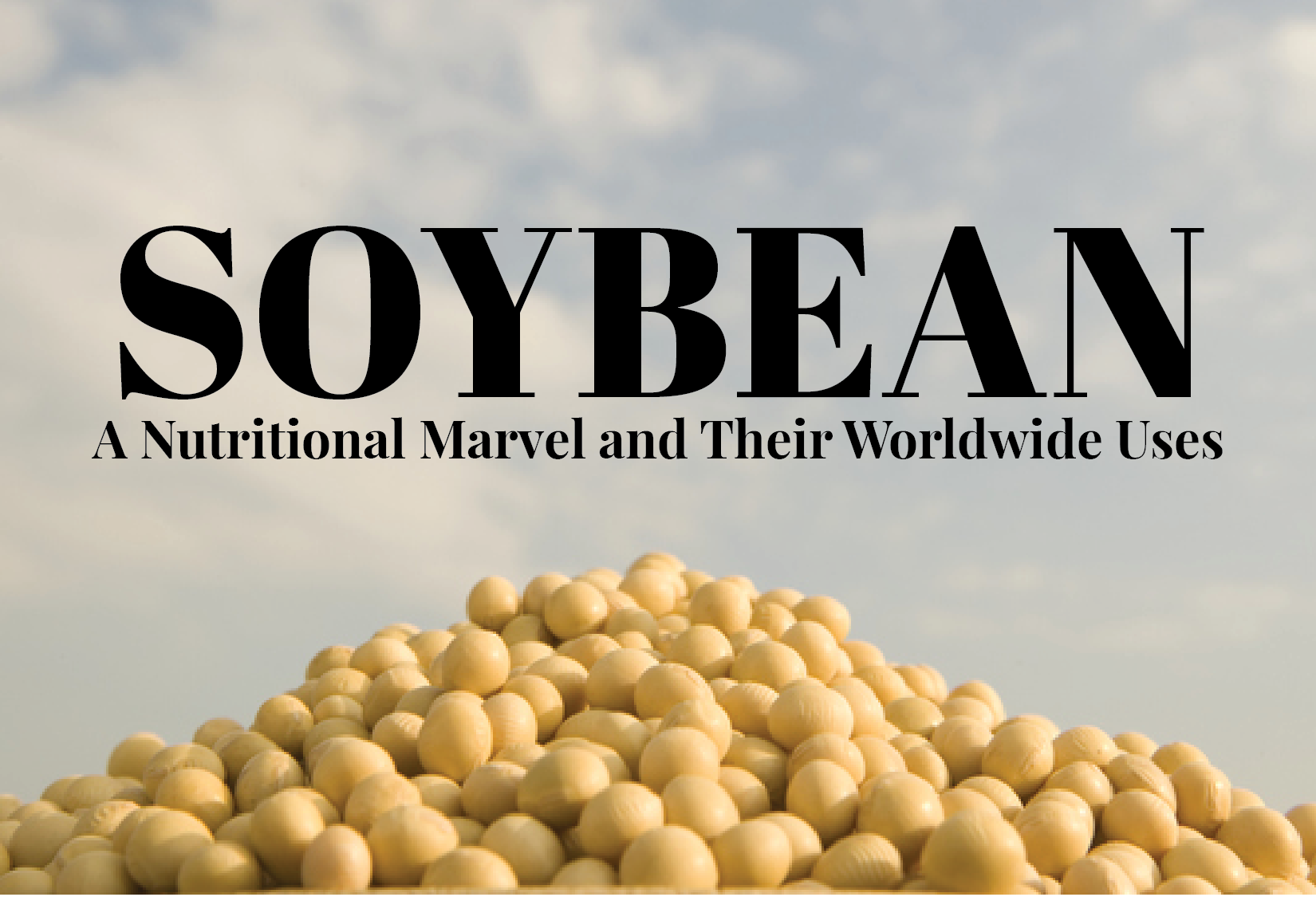
Article by
Soybeans, scientifically known as Glycine max, are a type of legume native to East Asia. They have been a crucial part of human diet and agriculture for thousands of years. Known for their high protein content and nutritional value, soybeans have become a staple ingredient in various diets around the world. This article delves into the various soybean products, their benefits, and their worldwide uses, highlighting why soybeans are a nutritional marvel.
Soy milk is a favorite among those seeking dairy alternatives. Made by soaking and grinding soybeans, boiling the mixture, and filtering out particulates, soy milk is rich in protein, calcium, and essential nutrients. Fortified with vitamins like B12 and D, it serves well in cooking, baking, or as a beverage.
Tofu, or bean curd, results from coagulating soy milk and pressing the curds into solid blocks. It's a superb source of protein, iron, and calcium, and its versatility shines in Asian cuisine—grilled, stir-fried, blended into smoothies, or added to soups and salads.
Tempeh, an Indonesian specialty, involves fermenting whole soybeans to create a firmer, nuttier product rich in protein, probiotics, and vitamins. It's an excellent meat substitute for vegetarians and vegans.
Soy sauce, a liquid condiment from fermented soybeans, roasted grain, brine, and mold cultures, enriches Asian dishes with its umami flavor.
Edamame, young soybeans boiled or steamed and sprinkled with salt, are a popular snack in Japanese cuisine, prized for their high protein and fiber content.
Miso, a thick paste from fermenting soybeans with salt and koji fungus, enhances soups, marinades, and sauces with its rich flavor and beneficial bacteria promoting gut health.
Soybeans and their related products offer a myriad of health benefits, making them a valuable addition to any diet. Here are some key benefits:
High in Protein: Soybeans are an excellent source of plant-based protein, ideal for vegetarians, vegans, and those reducing meat consumption. Soy protein is complete, containing all nine essential amino acids.
Rich in Nutrients: Soy products are packed with essential vitamins and minerals, including iron, calcium, magnesium, and B vitamins. Fortified soy milk, for example, provides as much calcium and vitamin D as cow's milk.
Heart Health: Consuming soy products can reduce cholesterol levels and improve heart health. Soybeans contain isoflavones, which reduce LDL cholesterol and increase HDL cholesterol. The fiber in soybeans also supports cardiovascular health.
Bone Health: Soybeans are a good source of calcium and vitamin D, crucial for bone health. Isoflavones in soy contribute to bone density and can prevent osteoporosis, especially in postmenopausal women.
Hormonal Balance: Isoflavones in soy, similar to estrogen, help balance hormone levels, benefiting women experiencing menopause by alleviating symptoms like hot flashes.
Digestive Health: Fermented soy products like tempeh and miso contain probiotics, promoting a healthy gut microbiome. Soybeans are high in dietary fiber, aiding digestion and preventing constipation.
Worldwide Uses of Soybeans
Soybeans are utilized in various ways across the globe, reflecting their versatility and nutritional value. Here are some examples of how soybeans are used worldwide:
Food Industry: Soybeans are a fundamental ingredient in many cuisines, particularly in Asian countries like China, Japan, and Korea. They are used to make traditional dishes such as tofu, miso soup, and tempeh. In Western countries, soybeans are increasingly used in plant-based food products, catering to the growing demand for vegetarian and vegan options.
Animal Feed: A significant portion of soybean production is used for animal feed. Soybean meal, a byproduct of soybean oil extraction, is a high-protein feed for livestock, poultry, and aquaculture. It is an essential component of animal agriculture, supporting the global meat and dairy industries.
Industrial Applications: Soybeans have various industrial applications due to their oil content. Soybean oil is used in the production of biodiesel, an environmentally friendly alternative to fossil fuels. Additionally, soybean oil is used in manufacturing products like soaps, cosmetics, and lubricants.
Agricultural Benefits: Soybeans play a crucial role in sustainable agriculture. As a legume, soybeans have the ability to fix nitrogen in the soil, reducing the need for synthetic fertilizers. This improves soil health and reduces the environmental impact of farming.
Soybeans are a sustainable crop, improving soil health with a low environmental footprint compared to animal agriculture. However, large-scale soybean farming can lead to deforestation, especially in regions like the Amazon rainforest. Promoting sustainable practices and responsible sourcing is crucial to mitigate these impacts.
Soybeans and their products offer health benefits and diverse applications, enhancing diets and industries globally. They provide essential nutrients, support heart health, and serve in sustainable agriculture and industry. As demand grows for plant-based foods, soybeans will play a vital role in meeting global nutrition needs and promoting sustainability.
 Monthly "Azeem English Magazine", launched in 2000, records the information about diverse fields like mental health, literature, research, science, and art. The magazine's objective is to impart social, cultural, and literary values to society.
Monthly "Azeem English Magazine", launched in 2000, records the information about diverse fields like mental health, literature, research, science, and art. The magazine's objective is to impart social, cultural, and literary values to society.
+92 51 88 93 092
First Floor, RAS Arcade, Eidhi Market, Street#124, G-13/4, Islamabad, Pakistan, 44000.